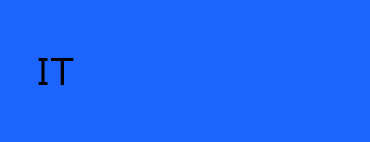Welcome at the Interface Culture program website.
Acting as creative artists and researchers, students learn how to advance the state of the art of current interface technologies and applications. Through interdisciplinary research and team work, they also develop new aspects of interface design including its cultural and social applications. The themes elaborated under the Master's programme in relation to interactive technologies include Interactive Environments, Interactive Art, Ubiquitous Computing, game design, VR and MR environments, Sound Art, Media Art, Web-Art, Software Art, HCI research and interaction design.

The Interface Culture program at the Linz University of Arts Department of Media was founded in 2004 by Christa Sommerer and Laurent Mignonneau. The program teaches students of human-machine interaction to develop innovative interfaces that harness new interface technologies at the confluence of art, research, application and design, and to investigate the cultural and social possibilities of implementing them.
The term "interface" is omnipresent nowadays. Basically, it describes an intersection or linkage between different computer systems that makes use of hardware components and software programs to enable the exchange and transmission of digital information via communications protocols.
However, an interface also describes the hook-up between human and machine, whereby the human qua user undertakes interaction as a means of operating and influencing the software and hardware components of a digital system. An interface thus enables human beings to communicate with digital technologies as well as to generate, receive and exchange data. Examples of interfaces in very widespread use are the mouse-keyboard interface and graphical user interfaces (i.e. desktop metaphors). In recent years, though, we have witnessed rapid developments in the direction of more intuitive and more seamless interface designs; the fields of research that have emerged include ubiquitous computing, intelligent environments, tangible user interfaces, auditory interfaces, VR-based and MR-based interaction, multi-modal interaction (camera-based interaction, voice-driven interaction, gesture-based interaction), robotic interfaces, natural interfaces and artistic and metaphoric interfaces.
Artists in the field of interactive art have been conducting research on human-machine interaction for a number of years now. By means of artistic, intuitive, conceptual, social and critical forms of interaction design, they have shown how digital processes can become essential elements of the artistic process.
Ars Electronica and in particular the Prix Ars Electronica's Interactive Art category launched in 1991 has had a powerful impact on this dialog and played an active role in promoting ongoing development in this field of research.
The Interface Cultures program is based upon this know-how. It is an artistic-scientific course of study to give budding media artists and media theoreticians solid training in creative and innovative interface design. Artistic design in these areas includes interactive art, netart, software art, robotic art, soundart, noiseart, games & storytelling and mobile art, as well as new hybrid fields like genetic art, bioart, spaceart and nanoart.
It is precisely this combination of technical know-how, interdisciplinary research and a creative artistic-scientific approach to a task that makes it possible to develop new, creative interfaces that engender progressive and innovative artistic-creative applications for media art, media design, media research and communication.
UFGonline Schulung
6. Oktober 2025, 9.00 bis 10.00 Uhr
Zu Semesterbeginn bietet Gregor Traugott WebEx-Einschulungen ins UFGonline für Mitarbeiter*innen und Lehrende/wiss. Personal an.
Folgende Termine sind dafür vorgesehen:
UFGonline Schulung für Mitarbeiter:innen & Lehrende - Deutsch
Montag, 6. Oktober 2025, 09.00 - 10.00 Uhr
https://kuni-linz.webex.com/kuni-linz/j.php?MTID=m8a548516acda57b729439b330704b685
Kennwort: ufgonline2025
Inhalt:
- Kurzpräsentation des neuen Desktops
- Raumsuche - Termine anlegen allgemein
- LV-Management
- LV-Termine anlegen
- LV-Gruppen- & Teilnehmerverwaltung
UFGonline Introduction for Employees - English
by Gregor TRAUGOTT
Tuesday, 7th. October 2025, 13.30 - 14.30 p.m.
https://kuni-linz.webex.com/kuni-linz/j.php?MTID=mef1dbe698d886121c1e38589a7385fc4
Password: ufgonline2025
Content::
- Brief presentation of the new desktop
- Room search -
- Creating appointments (general)
- Course management
- Creating course appointments
- Course group and participant management
UFGonline Schulung Prüfungsmanagement für Lehrende - Deutsch
von Gregor TRAUGOTT
Montag, 13. Oktober 2025, 09.00 - 10.30 Uhr
https://kuni-linz.webex.com/kuni-linz/j.php?MTID=ma89c837d7a69272c5459b8f8b2f04033
Kennwort: ufgonline2025
Inhalt
- Erste Schritte im Prüfungsmanagement - Prüfungs-PI
- Neue Prüfung anlegen
- Prüfungstermin auswählen
- Prüfungen beurteilen - Noten vergeben
- Gültig setzen der Prüfung
UFGonline Introduction Exam-Management for Teaching-Employees - English
by Gregor TRAUGOTT
Tuesday, 14th. October 2025, 13.30 - 15.00 p.m.
https://kuni-linz.webex.com/kuni-linz/j.php?MTID=mb33ec9a4c3a4ad0779cc5bd579a4fac8
Password: ufgonline2025
Content:
- First Steps in the Exam Management - PIN-Code
- Create a new exam
- Choose your exam
- Assessing Exams - Assign grades
- Validate the exam
Weitere Schulungen können für individuelle Gruppen ab 5 Personen gerne zu individuell vereinbarten Terminen durchgeführt werden.
Einführungen in englischer Sprache sind ebenfalls möglich.
Bei Interesse wenden Sie sich bitte an folgende E-Mail-Adresse: ufgonline.support@kunstuni-linz.at
